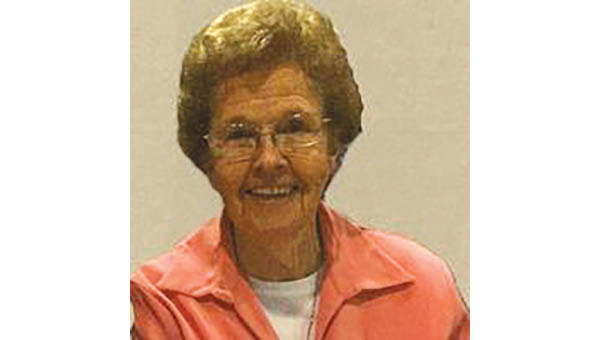ETSU to partner in new Tennessee Heart Health Network… Grant aimed at improving cardiovascular disease care and outcomes
Published 2:07 pm Thursday, June 3, 2021
|
Getting your Trinity Audio player ready...
|
FROM STAFF REPORTS
JOHNSON CITY – East Tennessee State University’s Center for Cardiovascular Risks Research is collaborating with researchers from the University of Tennessee Health Science Center and other key academic partners across the state to create a statewide network to identify, develop and implement patient-centered approaches to improve the quality of care and outcomes for people with cardiovascular disease.
The UT-led research proposal received a $4.5 million grant over three years from the Agency for Healthcare Research and Quality (AHRQ) to lead the Tennessee Heart Health Network, which will identify evidence-based interventions to aid primary care providers across the state in treating cardiovascular disease, the main cause of premature morbidity and mortality in the United States.
The co-investigators from ETSU are Dr. Hadii Mamudu, professor at the College of Public Health and director of the Center for Cardiovascular Risks Research; Dr. Timir Paul, an associate professor at Quillen College of Medicine, cardiologist and co-director of the Center for Cardiovascular Risks Research; and Dr. KariLynn Dowling-McClay, assistant professor at Bill Gatton College of Pharmacy.
“The overall goal is improving heart health across the state, but our two key ways are by focusing on smoking cessation and hypertension control,” Mamudu said.
Leading Tennessee health plans, health professional organizations, and advocacy organizations are supporting the effort. As part of this effort, Qsource, a non-profit health care quality improvement organization, will provide intensive practice facilitation services to 75 or more primary care practices across Tennessee’s three Grand Divisions. Additionally, individual “physician champions” from each region are leading the effort across the state. Approximately 25 of the primary care practices will be in East Tennessee.
“Once these primary care practices are recruited into this network, the ultimate goal is to support them with wrap-around quality improvement resources to improve the cardiovascular health of their patients,” Dowling-McClay said. “The strength of having this statewide team across a few different academic centers is that we can really focus on the unique needs and cultural differences between central, east, and west Tennessee.”
As a member of the Tennessee Heart Health Network’s Resources and Education Team, Dowling-McClay is helping to create a toolkit that can be used by the participating practices.
“Since I am a pharmacist, I am helping to lead a group that is making a pharmacist-physician collaboration toolkit,” she said.
There will be a variety of toolkits, and the primary care practices will choose which ones would be most beneficial for their practice.
“At the end of the three-year grant period, we’re going to leave behind an infrastructure that will continue to impact the state,” Mamudu said.
Paul said the collaboration with UT has many benefits, including the opportunity for the ETSU Center for Cardiovascular Risks Research to focus on the unique needs of the eastern division of the state.
“As we focus on quality improvement, one thing we will be closely examining is how much impact these interventions will have when comparing the eastern and western divisions of the state,” Paul said.
Tennessee ranks third in the United States in cardiovascular events, sixth in deaths from cardiovascular disease, and fifth in deaths from stroke. In Northeast Tennessee, the adult smoking rates are between 20-25%, depending on the county. This is above the state and national averages.
“One of the endpoints of this statewide collaboration is attention to some very high-priority health issues that impact our communities,” Dowling-McClay said.
The Tennessee Heart Health Network is the signature initiative for the newly formed statewide Tennessee Population Health Consortium. Partner health systems and practices are participating in the consortium and its Tennessee Population Health Data Network to track patient outcomes and ensure people at risk for heart disease get the lifesaving recommended care they need most. The network will also get the advice and expertise of patients across the state on the interventions they find most effective in helping them adhere to treatment and make the lifestyle changes necessary to improve their heart health.
To learn more about the Tennessee Heart Health Network, visit qsource.org/tn-heart-health-network.
Housed in ETSU’s College of Public Health, the Center for Cardiovascular Risks Research is a cross-disciplinary, interprofessional research center that aims to reduce cardiovascular disease and associated risk factors in Central Appalachia, while addressing the health disparities and health care inequities experienced by residents of the region. Learn more at etsu.edu/cph/cardiovascular-risks-research.







